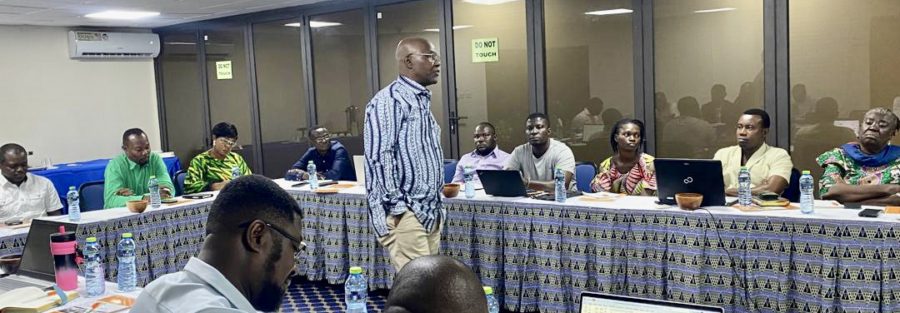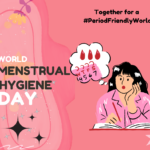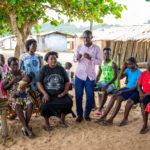ARHR has successfully conducted its second trainer-of-trainers session to boost the capacities of its six partner organizations as part of actions to implement the “Putting Women and Girls at the Center of Primary Health Care (PHC)” initiative. Supported by SEND Ghana and funded by Co-Impact, this initiative seeks to enhance community health outcomes using the Gender Model Family (GMF) Framework.
The GMF framework focuses on educating nuclear families about the importance of fair role-sharing at home to ensure that no family member feels overburdened, which could negatively impact their health. The framework promotes mutual support within families to enhance health outcomes and serve as a roadmap to effective PHC.
The first training session, conducted months ago, outlined partners’ responsibilities throughout the project’s lifecycle and guided them on best practices for selecting communities and families. It also trained partners on how to assist families in creating their desired action plans.
The second session emphasized the selection of mentor couples from the families that have been selected already. These families, who exemplify best practices in equitable role-sharing, will serve as role models for other families in their communities. Additionally, these mentor families will act as monitors, ensuring that other families adhere to their designed action plans to promote health through equitable role-sharing.
Partners were urged to select committed couples and train them on essential monitoring tools for effective reporting. These tools include maintaining meticulous records and ensuring that monitors adhere strictly to their roles without overstepping into personal family matters. Effective monitoring tools included a questionnaire on adherence to assess participants’ understanding and commitment to the PHC plan, and a progress check to evaluate the progress of PHC activities in the community.
Partners were advised to leverage Civil Society Organizations (CSOs) and other entities to sustain the progress and changes initiated by the project. They were also charged with ensuring that GMF Community Meetings, Quarterly Meetings, and Assembly Meetings are held to promote community cohesion and offer a platform for families to share their experiences, challenges, and ways forward.
The training session concluded with a renewed commitment from partners to continue empowering communities, ensuring that families remain at the forefront of primary health care initiatives. SEND Ghana underscored its commitment to provide continuous support, highlighting the collective efforts to create sustainable health improvements through the Gender Model Family framework.



